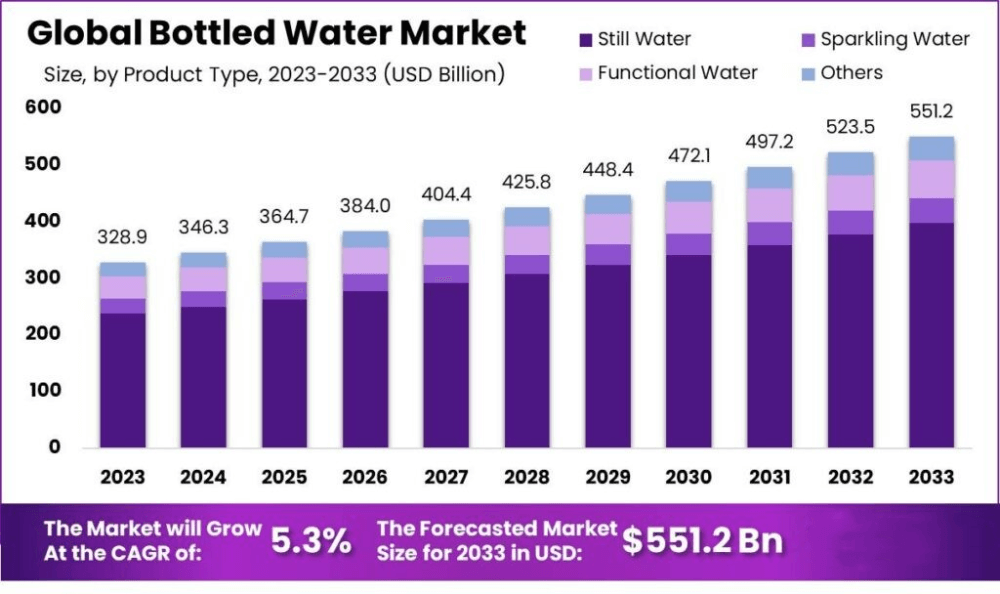The global bottled water market is valued at over $40 billion, with numerous businesses thriving from North America to Africa. Giants like Nestle, Pepsi, and Coca-Cola dominate the industry with impressive profit margins. If you’re looking to establish a water bottling plant, there are lucrative opportunities in both local and global markets. However, to outperform the competition, you need to think creatively and develop original strategies for attracting and retaining customers. Here are six key tips to ensure your success as a water distributor.
1. Conduct Market and Competitor Research
Thorough research is crucial for starting a successful water distribution business. The sector is competitive, and without proper research, success is unlikely. Here’s what you need to focus on:
Market Analysis
Determine the size of the market, the demand for water, and the competition in your area. This will help you identify business prospects early on and guide your approach.
Regulatory Requirements
Research the regulatory requirements for water distribution in your state or country. This includes obtaining permits and licenses, complying with health and safety regulations, and meeting water quality standards.
Competition Analysis
Identify your competitors, their marketing strategies, and profit margins. This will help you understand the competitive landscape and identify opportunities.
Industry Trends
Stay updated with industry trends, innovations, and best practices. Attend industry conferences, read publications, and network with professionals to keep your business competitive.
2. Develop a Realistic Business Plan
A well-researched business plan is essential. It should include:
Company goals
- Marketing strategy
- Operations plan
- Financial projections
- Risk assessment
A solid business plan clarifies your objectives, identifies potential obstacles, and outlines strategies for success. It’s also crucial for securing funding or investment.
3. Secure Funding
Starting a business requires capital. The amount needed depends on the size and scope of your bottled water company. Here are some funding options:
Small Business Loans
Banks and financial institutions offer loans to entrepreneurs. These may be secured or unsecured and might require collateral or a personal guarantee.
Grants
Look for grants available for entrepreneurs at local, state, and federal levels. While many may not be specific to the water distribution sector, it’s worth exploring.
Angel Investors
Angel investors provide funding in exchange for equity. They may invest if they see strong growth potential in your business.
Evaluate the terms and conditions of each funding option carefully and ensure you have a solid business plan and financial projections.
4. Set Up Your Business: Water Source and Equipment
A reliable water source is essential. Conduct extensive research to find a source that meets regulatory requirements and your business standards. Consider factors like water quality, quantity, availability, and cost.
Equipment and Vehicles
Choose equipment and vehicles that are durable, efficient, and compliant with regulations. They should have the capacity to transport and store the required amount of water. Regular maintenance and inspection are necessary to ensure they remain in good working condition.
5.Develop a Pricing and Marketing Strategy
Pricing Strategy
Research competitor prices and set your prices high enough to cover costs and make a profit. Consider operating costs, equipment, labor, and overhead expenses.
Marketing Strategy
Identify potential clients and promote your business through advertising, referrals, and networking. Tailor your bottled water to meet the specific needs of households, businesses, or local governments.
6. Measure Success and Grow Your Business
Continuously monitor and evaluate your business performance. Regularly review operations, financial statements, customer feedback, and industry trends to identify areas for improvement and growth.
Key Performance Indicators (KPIs)
Track KPIs such as revenue, customer satisfaction, and water quality. Regular monitoring helps identify issues early and take corrective action.
Financial Analysis
Analyze income statements, balance sheets, and cash flow statements to understand revenue streams and expenses. Make informed decisions about pricing, investments, and budgeting.
Risk Management
Evaluate personal and business accounts, insurance premiums, and the need for asset protection or liability insurance.
By following these steps, you can build a successful bottled water business and ensure its growth and sustainability in a competitive market.

